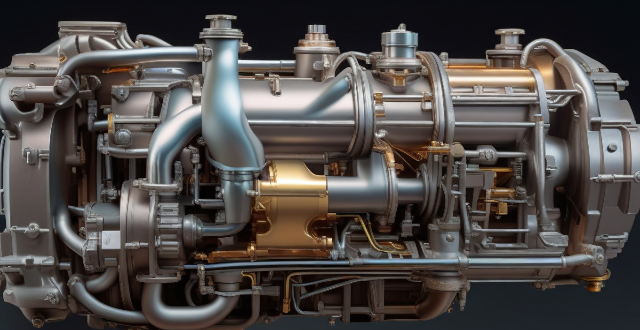The article discusses the advantages of a gasoline hybrid engine, which is a combination of a traditional internal combustion engine and an electric motor. The benefits include improved fuel efficiency through reduced fuel consumption, regenerative braking, and start-stop technology; lower CO2 emissions and decreased pollutants resulting in cleaner air quality; and enhanced performance with instant torque, smooth driving experience, and extended brake life due to regenerative braking. Overall, gasoline hybrid engines provide a balance between power and efficiency, making them an attractive option for eco-conscious drivers.

Benefits of a Gasoline Hybrid Engine
A gasoline hybrid engine combines a traditional internal combustion engine with an electric motor to provide power to the vehicle. This innovative technology offers several benefits over conventional gasoline engines, including improved fuel efficiency, reduced emissions, and enhanced performance. Let's explore these advantages in detail:
Improved Fuel Efficiency
- Reduced Fuel Consumption: The electric motor assists the gasoline engine during acceleration and cruising, allowing the internal combustion engine to operate more efficiently. As a result, the overall fuel consumption is significantly reduced compared to a standard gasoline engine.
- Regenerative Braking: Many hybrid systems employ regenerative braking, which captures energy normally lost during braking and uses it to recharge the battery. This further improves fuel economy by reducing the amount of energy needed from the gasoline engine.
- Start-Stop Technology: Hybrid vehicles often feature start-stop technology that shuts off the engine when the vehicle is idling, such as at traffic lights or in stop-and-go traffic. This eliminates the wasted fuel typically associated with idling and helps conserve energy.
Reduced Emissions
- Lower CO2 Emissions: Since hybrid engines use less gasoline, they produce fewer carbon dioxide emissions than their non-hybrid counterparts. This makes them more environmentally friendly and helps combat climate change.
- Decreased Pollutants: Hybrid vehicles also emit fewer harmful pollutants like nitrogen oxides (NOx) and particulate matter, contributing to cleaner air quality in urban areas where these pollutants can have significant health impacts.
- Eco-Friendly Refueling: Some hybrids can be refueled using biofuels or other renewable sources, further reducing their environmental footprint compared to conventional gasoline vehicles.
Enhanced Performance
- Instant Torque: Electric motors provide instant torque, which results in quick acceleration from a standstill. This can make hybrid vehicles feel more responsive and agile compared to their purely gasoline-powered counterparts.
- Smooth Driving Experience: The electric motor can also provide additional power under acceleration, allowing the gasoline engine to operate at a more efficient RPM range. This leads to a smoother driving experience with less noise and vibration.
- Regenerative Braking Benefits: In addition to improving fuel economy, regenerative braking can also improve brake life since it reduces wear on the friction brakes. It also provides a unique driving sensation as deceleration feels different from traditional braking systems.
In conclusion, gasoline hybrid engines offer numerous benefits over conventional gasoline engines, including improved fuel efficiency, reduced emissions, and enhanced performance. By combining the strengths of both internal combustion and electric propulsion, hybrid vehicles strike an excellent balance between power and efficiency, making them an attractive option for those looking to reduce their environmental impact while enjoying a pleasant driving experience.